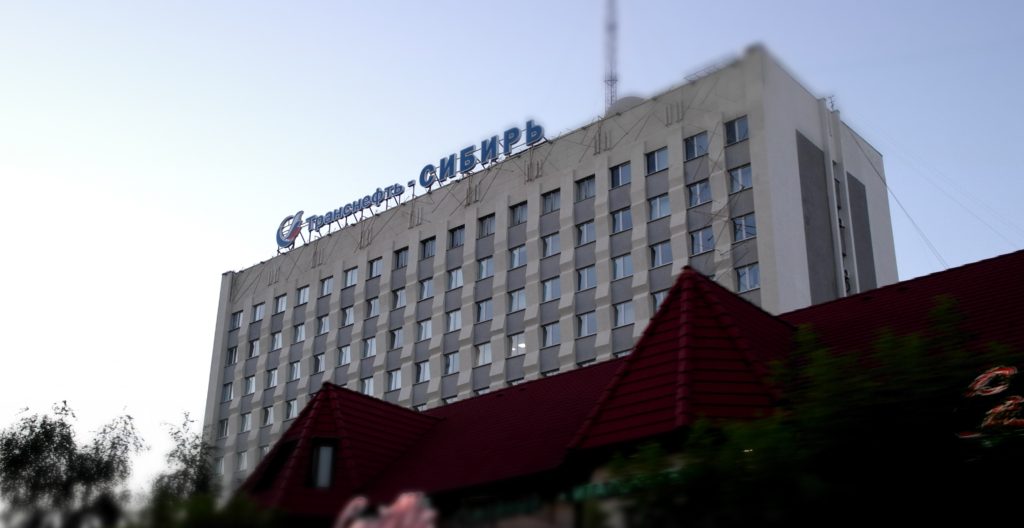Comment
In July, for the second time this year, Poland, Germany and other Central European countries halted importing crude oil from Russia’s “Drushba” (“Friendship”)-pipeline. European refineries also stopped imports in April for seven weeks. The reason for both stoppages occurred as a result of contaminated crude from Russia. If used, this crude can cause critical damages to refineries. Reportedly, the concentration of chloride in the crude was about 30 times higher than the maximum allowed concentration. Chloride is a useful chemical to boost oil drilling, however, it can corrode essential refinery equipment. Russian oil producers are permitted to use chloride for drilling but are then required to remove it, before it enters the pipeline system. Russia may not have had the chloride removed, due to the financial cost, as the process is expensive.
Oil Price Hikes and a Damaged Image for Moscow
The “Drushba” is Russia’s most important export pipeline to Europe, connecting with Belarus, Ukraine, Hungary, Slovakia, Czech Republic, Poland, Germany and the Baltic States. The pipeline is responsible for one percent of global oil supplies. Following April’s stoppage, Brent oil prices rose from $70 per barrel to a yearly high of $75 per barrel, however, oil prices were already high, resulting from the Iranian sanction crisis. The oil price recovered within two days, down to $71 per barrel, the average price of Brent for the month of April. The second stoppage did not result in a significant oil price hike, which in early July, stayed between $63 and $65 per barrel. The high flexibility to switch import sources in major European economies allowed for price stability.
Despite decreased oil imports, at least Germany’s oil supplies remained secure, mostly because of the country’s opportunities for multiple suppliers and supply routes. In this case, missing Russian oil imports have been compensated by oil shipments via the port of Rostock. Also, Italian and Dutch oil pipelines are capable of fulfilling any German oil supply needs, albeit at an initially higher price. According to the German Economics Ministry, German oil reserves remain untouched.
Damage to the Russian economy has thus been much higher than those of European neighbors. The value of the contaminated crude oil is $2.6 billion. Although, most of the contaminated oil will probably be stored, cleaned and reused. The partly absent and limited oil deliveries over a period of seven weeks have likely caused another similar damage to the Russian oil economy.
Furthermore, damage to Russia’s image as a reliable oil and gas supplier is probably even more tainted. Russian oil exports have a value of about $200 billion per year. The country is structurally highly dependent on oil exports, while European oil importers have demonstrated to be malleable and resilient.
Gas markets are a different story. If a Russian gas import stoppage occurs, European gas consumers would be alarmed as some Europen countries are far more reliant on Russia for its gas imports and less flexible to revert to redundant sources of gas supply. Russia’s current plan to build a large-capacity gas pipeline “Nord Stream 2” to Germany, is perceived by the international community, in specific by the EU and US, as highly controversial. With oil supply shortages and perceptions that Russia could become an unreliable supplier, this project is further threatened.

Russian Oil Supply Issues Run Deep
Is there any reason the oil import stop depicts an intentional plot by the Kremlin to demonstrate its strength? Highly improbable, yet diplomatic issues between Russia and its regional partner, Belarus might play a role. Belarus and its authoritarian regime under President Aleksander Lukashenko are highly dependent on Russian oil exports to Europe, benefitting financially as a refiner of Russian oil and a transnational pipeline provider. The Belarusian energy supplier Belneftchim reported damage of $100 million caused by the contaminated oil, which Belarus will ask to be compensated for by Russia.
Additional bilateral tensions exist from planned Russian tax reform, scheduled for 2024. Proposed legislature would deprive Belarus of approximately $7 billion per year in export duties on refined Russian oil because Belarusian import prices for Russian oil will align with global oil prices. At present, Minsk pays a discount on Russian oil, because of its political union with Russia. Russia’s proposed tax reform is likely driven by financial need.
The contaminated Drushba pipeline highlights the specific problems that face its oil industry. Russian authorities stated that a few or single small and private Russian oil producers from Western Siberian oil fields filled the Russian pipeline system with contaminated oil. The Russian oil industry is dominated by five major oil companies, of which the biggest is Rosneft, followed by Lukoil, Gazpromneft, Surgutneftegaz and Tatneft. At the same time, there is also a large and confusing amount of small, private oil producers that support these big five companies. For these small, supporting companies, their role is evolving, however, they are far less competent. These small producers operate at small or zero profit margins at so-called Brown Fields in Western Siberia. Brown Fields are formerly large oil fields that have reached a near depletion status. Large oil companies often abandon oil fields before complete depletion, due to unreasonably high costs of drilling. Similar to the US “shale revolution”, privately owned small companies can operate at lower costs and realize profits from those abandoned fields, serving as bottom-feeders, while the infrastructure remains available.
The number of Brown Fields in Western Siberia grows organically because oil reserves in Russia are as limited as in other oil-producing countries. In addition, Green Fields, defined as untapped oil fields, are becoming increasingly rare. Large oil companies are required to move to remote regions of Russia to find new fields, which require more investment in exploration, drilling, and infrastructure. Those investment costs are not easily available while global oil prices are relatively low global oil prices and Russia suffers from international economic sanctions.
Meanwhile, it becomes harder for private companies to maximize profits at the mentioned Brown Fields, where chlorides are essential for easier drilling, and as chloride filtering becomes expensive. Oil production loses its viability, even for the small producers. It is probably no coincidence that contaminated oil ended up in the Drushba pipeline twice in four months.
Prospects for the Future
Moscow and Russian oil producers face structural problems in its oil industry. Inevitably, the circumstances of oil field depletion and costly exploration of new fields will ultimately lead to higher oil production costs. The 2024 tax reform is a sign of adjustment to this reality but will affect oil producers and partners like Belarus negatively.

Publicly, Russian President Vladimir Putin’s expression of concern, firing of a general director of the Russian pipeline operator Transneft and four accused individuals being taken into custody embody typical muted actions and responses from Moscow. Privately, Moscow is deeply concerned and does not wish to expose deeper rooted internal structural issues. Privatization in Russia has a history of increasing corruption. Currently, Russian energy companies are self-responsible for quality and compliance control. Preventing Russia’s vital oil export industry from falling further, the reinforcement of quality control authorities at Siberian might be a necessity to the chagrin of the small oil companies. Rosneft, Russia’s state-owned oil company, as a pioneer, announced in June its plans to outsource quality to a third-party consulting firm. Other companies are anticipated to follow Rosneft’s new policy.

